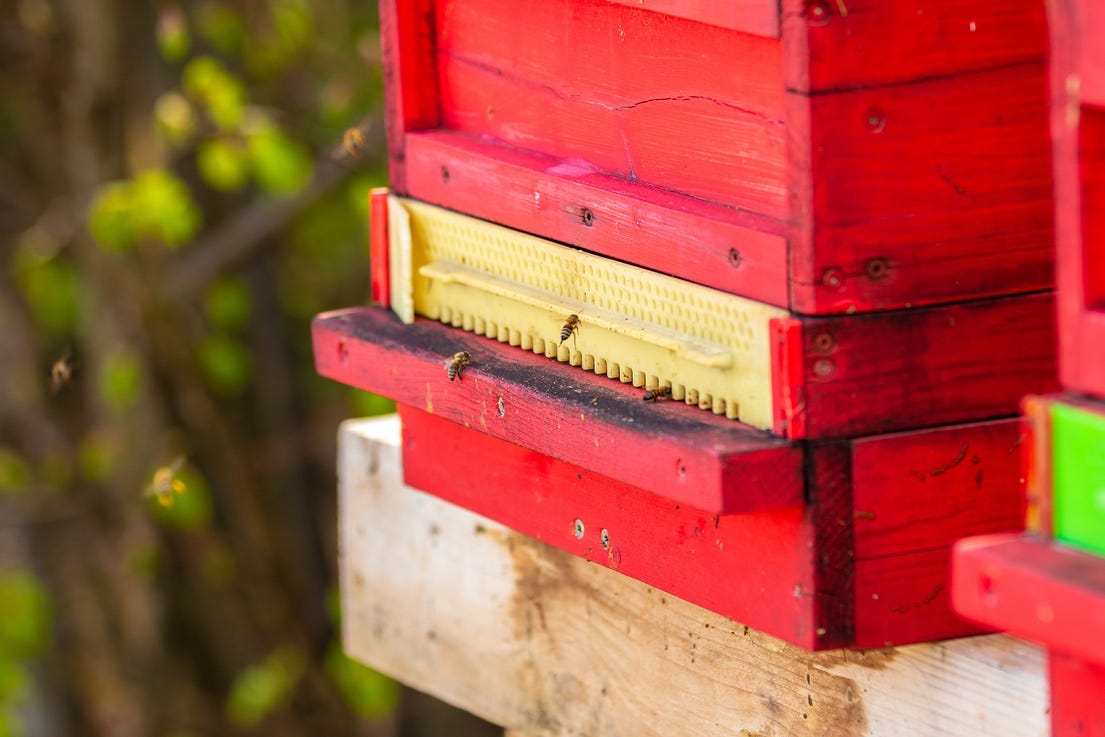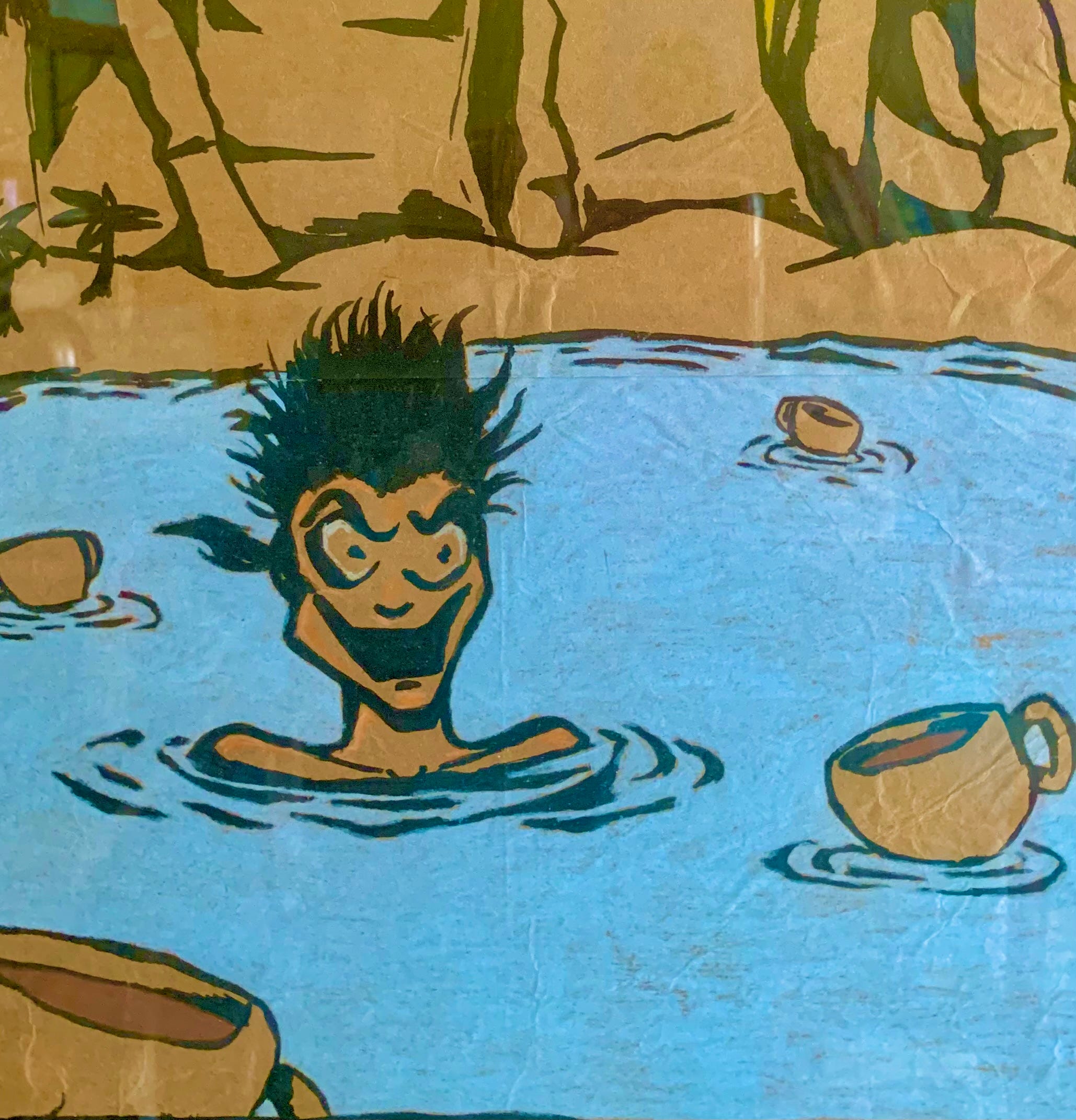
5 min read
My first memory of Annie is of her standing in the doorway of the shop. Her outfit looked as if she’d dressed out of a dumpster. Her sneakers were two sizes too large and covered with food; I hope it was food. She sported a shirt of Hawaiian flowers in hues of orange, yellow, and purple that flowed over sweatpants, which at one time were white. Her hair was wild, blackish, now with shots of gray taking over.
I smiled and asked her name. She looked down at her shoes self-consciously and said Annie, then she looked up and gave me a smile that radiated across her face, giving away her sweetness.
Annie had a mental disability, but she functioned well day to day. The staff at Marrakesh taught her how to re-cain chairs, which she did beautifully. She understood everyday conversation, rode a bike when the weather permitted, and kept herself clean. Anne was our neighbor. We all loved her.
She was getting on in years, so her hearing was muted, giving her voice a shrill that was sometimes piercing. When she ordered coffee, she’d bellow, “LULU, half a cup, then smile to herself.
One day, Annie asked me if she could wash my windows. OK, Annie, but first sit and have a bagel and coffee; you can help me after breakfast. “OK, half a cup.” Every time I’d offer her coffee, almost daily, she’d yell out “half a cup, “half a cup, half a cup, half a cup, and walk away smiling, seeming to enjoy the repetition.
After her breakfast, she took her bucket and walked outside to wash the windows. Anne, I called out, I have a pail with a squeegee and paper towels,” but she insisted on using her bucket with rags stuffed in it. The morning crowd kept me busy, so when I looked up a short time later, I saw her wiping the windows with a rag from her bucket, full of grease. The grease now streaked across the window, making it dirtier than when she started. Watching this, I felt as if I were in an Altman film.

Later that week, in late October, when I opened the store at 7 AM, I found a startling scene; there appeared to be at least 100 yellow jackets buzzing around the pastry case. Where they came from was a mystery. I called my pest control company. I was thankful that Scott arrived within thirty minutes. I’m sure he knew I wanted to find the nest quickly so we could safely remove it before the yellow jackets stung someone.
Scott searched for over an hour but said he couldn’t find it, though he checked inside and out. He kept scratching his head, “I don’t know, Lulu, I’m not sure where they’re coming from; you’ll need to follow one as it leaves the store to see in what direction it travels.” “Scott, you’re kidding me, right.” No, he said that’s the only way we’ll know for sure where the nest is. As you can imagine, the bees held court for several days until the weather cooled.
Amazingly, my customers were undaunted. When I mentioned closing the store until we located the hive, they told me, oh, no, stay open; we’ll deal with it. They’ll be gone soon.
The weather was cooling, so the bees were getting ready to return to the hive for the winter. Annie came to help kill the remaining holdouts. Her broom and shovel were flying in the air while customers, wide-eyed, tried to move out of her way. Annie, Annie, be careful you’ll hurt someone. “I’ll get those bastards, Lulu, don’t worry.” Finally, I said, “Annie, stop. Come back later when I’m cleaning this afternoon before closing; we’ll sweep them up.” “OK, Lulu,” she said as she walked out the door.
Later that day, a conservitive looking Yale couple came in. They looked like an elegant, old, moneyed “American Gothic.” Tall, slim, and beautifully dressed.
After they ordered, they stood at the counter chatting with me, telling me how much they loved my little space. Then, they promised to return whenever they came to New Haven.
In mid-sentence, the door flew open, slamming against the door molding with a loud bang, “I’ll kill those dirty little bastards, Lulu,” Annie screamed. Then she jumped on and off the benches onto the chairs, her arms swinging her dented dustpan pan clotted with food, dust, grime, and a disgusting whisk broom with clumps of hair and garbage all over it.
As she killed them, a few landed on the two people standing at the counter. I’m watching this, grinning like Sylvester the cat hiding
a canary in its mouth. “Annie, I said through clenched teeth, let’s wait until everyone has gone. You may anger the remaining bees, and we’ll get stung.” The couple left quickly with a shocked expression.
Well, Annie, we won’t be seeing them again. Oh, Lulu, don’t worry, I’m here, and at least the little bastards have gone.
Alone now, we swept up the dead bees which filled the dustpan. Luckily, the cold weather set in the next day, so only a few bees remained.
Miraculously, not one person was stung, and customers just dealt with them buzzing around by moving out of their way, which made me smile. When I’d apologize, they’d say, no worries, Lu, they’ll be gone soon, and bees aren’t dirty.
I loved my customers, and like me, they loved coffee. Crisis averted.






Wow I remember Annie. I remember her smile. I remember her ways. Everyone tolerated everybody. Your place was really a truth loving communal spot for the neighborhood.
I too had a coffee shop! A good training for compassion is owning a coffee shop ❤️ https://open.substack.com/pub/makepurethyheart/p/from-running-a-cafe-to-a-foodblog?utm_campaign=post&utm_medium=web